The National Standard Examination in Astronomy (NSEA) 2025 is India’s premier high school-level astronomy examination, organized annually by the Indian Association of Physics Teachers (IAPT). The first step for students to compete at the International Olympiad on Astronomy and Astrophysics (IOAA) is passing the NSEA scheduled for Saturday, November 22, 2025, as part of the multi-stage selection process. NSEA helps students become knowledgeable in astronomy and astrophysics so they can compete with others on a global level.
Over 200,000 students from across the country join the NSEA Olympiad Exam every year, which is why it is considered one of the most competitive and popular astronomy International Science Olympiad competitions for school students. Students could register for NSEA from August 21 to September 14, 2025, and the exam will take place on Saturday, November 22, 2025, from 2:30 PM to 4:30. Students should register on the official IAPT website for the course. Getting involved in NSEA makes students eligible for scholarships, research projects, and honors at top British universities. It supports students who are interested in astronomy, astrophysics, and space sciences by developing their abilities to compete on the national and international stage.
The NSEA syllabus is primarily based on the NCERT Science Olympiad syllabus curriculum related to astronomy topics covered up to Class 11 and 12 levels. It is recommended that students carefully study the textbook before looking up further information in other resources. On the exam, you will have to apply your understanding of astronomy, analyze data, and solve problems:
| Parameter | Details |
|---|---|
| Organization | IAPT (Indian Association of Physics Teachers) in collaboration with HBCSE (Homi Bhabha Centre for Science Education) |
| Exam Name | National Standard Examination in Astronomy (NSEA 2025) |
| NSEA 2025 Exam Date | Saturday, November 22, 2025 |
| Mode of Exam | Pen and Paper Mode |
| Duration of NSEA Exam | 2 Hours (2:30 PM to 4:30 PM) |
| Type of Questions | Multiple Choice Questions |
| Official Website | https://www.iapt.org.in/ |
The NSEA 2025 Exam date evaluates students through two parts, designed to test both accuracy and analytical skills in astronomy. It features different types of Science Olympiad questions, each with its own way of getting scored, so students have to pay attention to details. The exam is offered in a few Indian languages, so people can pick which one they feel most comfortable with when they sign up.
| Event | Date |
|---|---|
| Registration Begins | August 21, 2025 |
| Last Date to Apply | September 14, 2025 |
| Exam Date | Saturday, November 22, 2025 |
| Result Declaration | January 2026 |
| 2nd Stage (INBO) | February 2026 |
The NSEA Exam is tailored for Indian students passionate about astronomy, primarily targeting higher secondary level students. It takes place across many centers so that candidates can find a location that suits them best. Only students who qualify as per certain conditions can apply for this high-value exam.
The Indian Association of Physics Teachers (IAPT) manages all NSEA registrations via its official website. Students are welcome to enroll on their own or through their schools or places of affiliation. Registration starts in August and comes to a close in mid-September.
Here is the step-by-step guide for NSEA Online Registration 2025:
The application fee for the NSEA Exam 2025 is made affordable so that students from different parts of India can participate. The method of registration can slightly influence how much the fees are. If the fee payment is made during the NSEA online registration, it confirms the candidate’s application.
| Mode of Registration | Fee Amount (Approx.) |
|---|---|
| Through School/Center | ₹200 |
| Individual | ₹250 – ₹300 |
Understanding how the Astronomy Olympiad Exam 2025 is organized is vital to doing well in any competition. This exam tests a student’s knowledge up to the senior secondary (Class XII) level through 60 multiple-choice questions. Knowing what to expect in the exam helps students plan their reviews accordingly. Here are the details of the exam pattern of NSEA Olympiad 2025.
| Section | Number of Questions | Type | Marks for Correct Answer | Negative Marking |
|---|---|---|---|---|
| Part A | 48 | Single correct option MCQs | +3 | -1 |
| Part B | 12 | Multiple correct options MCQs | +6 | 0 |
The Astronomy Olympiad Syllabus covers foundational concepts in physics, mathematics, and elementary astronomical notions essential for understanding astronomy and astrophysics. The syllabus covers topics from CBSE Class 12 in physics and mathematics, and has a main focus on basic astronomy too. Students need to be familiar with the science and math concepts covered up to Class 10.
| Subject | Topic | Subtopics / Key Concepts |
|---|---|---|
| Physics | Units and Measurements | Systems of units, SI units, accuracy & precision, errors, significant figures, dimensional analysis |
| Motion in a Straight Line | Position-time graphs, speed & velocity, differentiation & integration basics, uniformly accelerated motion, velocity-time & position-time graphs | |
| Motion in a Plane | Scalars & vectors, vector addition & multiplication, projectile motion, uniform circular motion | |
| Laws of Motion | Newton’s laws, inertia, momentum, impulse, friction, centripetal force, equilibrium | |
| Work, Energy & Power | Work done by forces, kinetic & potential energy, conservation of energy, power, elastic & inelastic collisions | |
| System of Particles & Rotation | Centre of mass, torque, angular momentum, moment of inertia, equations of rotational motion | |
| Gravitation | Kepler’s laws, universal gravitation, satellite motion, escape velocity | |
| Mechanical Properties of Solids | Stress-strain relations, Young’s modulus, bulk modulus, shear modulus, Poisson’s ratio | |
| Mechanical Properties of Fluids | Fluid pressure, Pascal’s law, viscosity, Bernoulli’s theorem, surface tension | |
| Thermal Properties of Matter | Heat, temperature, calorimetry, phase changes, heat transfer methods | |
| Thermodynamics | Zeroth, First, and Second laws, heat engines, refrigeration | |
| Kinetic Theory of Gases | Gas laws, molecular speeds, degrees of freedom, mean free path | |
| Oscillations & Waves | Simple harmonic motion, wave motion, superposition, Doppler effect | |
| Electrostatics | Coulomb’s law, electric field & potential, capacitors, Gauss’s law | |
| Mathematics | Sets and Functions | Sets, relations, functions, trigonometric & inverse functions |
| Algebra | Mathematical induction, complex numbers, quadratic equations, permutations & combinations, binomial theorem, sequences & series, matrices, determinants | |
| Coordinate Geometry | Straight lines, conic sections, three-dimensional geometry | |
| Calculus | Limits, derivatives, integrals, continuity, differential equations | |
| Mathematical Reasoning | Logic and reasoning | |
| Statistics & Probability | Data analysis, probability theory | |
| Vectors & 3D Geometry | Vector algebra, three-dimensional coordinate geometry | |
| Linear Programming | Optimization techniques | |
| Elementary Astronomical Notions | Solar System & Phenomena | Sun, planets & moons, comets, asteroids, Earth’s motions, lunar phases, eclipses, tides |
| Universe Structure | Stars, galaxies, clusters of galaxies | |
| Night Sky Familiarity | Bright stars, constellations, Milky Way, celestial paths, rising and setting of stars | |
| Telescopes | Types, principles, magnifying power | |
| History of Astronomy | Major milestones and discoveries |
Students who excel in the NSEA 2025 have the opportunity to represent India in national and international astronomy competitions. Qualifiers are offered advanced camp training, financial support, and guidance programs that assist in building qualifications in astronomy and astrophysics. Young scientists are encouraged to explore space through the exam.
Once they are qualified, students join the Indian National Astronomy Olympiad (INAO), then attend the Orientation-Cum-Selection Camp (OCSC), and participate in the International Astronomy Olympiad (IAO).
| Stage | Exam Name | Conducted By |
|---|---|---|
| Stage 1 | National Standard Examination in Astronomy (NSEA) | HBCSE |
| Stage 2 | Indian National Astronomy Olympiad (INAO) | HBCSE |
| Stage 3 | Orientation-Cum-Selection Camp (OCSC) | HBCSE |
| Stage 4 | Pre-Departure Training (PDT) | HBCSE |
| Final Stage | International Astronomy Olympiad (IAO) | International |
Make sure to find the correct study materials to help you in NSEA. Below are some books that introduce the main ideas and give plenty of exercises:
To be well prepared, you should study the required topics, practice all the time, and attempt old exams. You could benefit from taking part in coaching classes or online training sessions for Olympiads. Stress the exercise of thinking skills instead of only memorizing formulas.
You can expect the results to be announced on the IAPT website by early January 2026. Usually, the minimum score is calculated by averaging the top 10 scores from the country. Those who achieve the top scores in their state are allowed to take part in the Indian National Astronomy Olympiad (INAO).
The National Standard Examination in Astronomy (NSEA) 2025 is a prestigious competition that identifies and nurtures India’s brightest astronomy students. It allows people to take part in national and international projects, honing their skills and possibly building rewarding careers in astronomy and space sciences.
Download previous years’ NSEA Test Papers PDF to practice and improve your understanding of Astronomy concepts, celestial mechanics, and observational skills. These tests are ideal for students preparing for competitive astronomy exams.
Practice NSEA Test 1 to strengthen your astronomy problem-solving and analytical skills.
Download PDFDownload NSEA Test 2 to enhance your understanding of advanced astronomy concepts.
Download PDFTest your astronomy knowledge with NSEA Test 3 and improve your exam readiness.
Download PDFAccess free NSEA (National Standard Examination in Astronomy) sample tests and answer keys to strengthen your preparation and practice effectively.




Leave a Comment